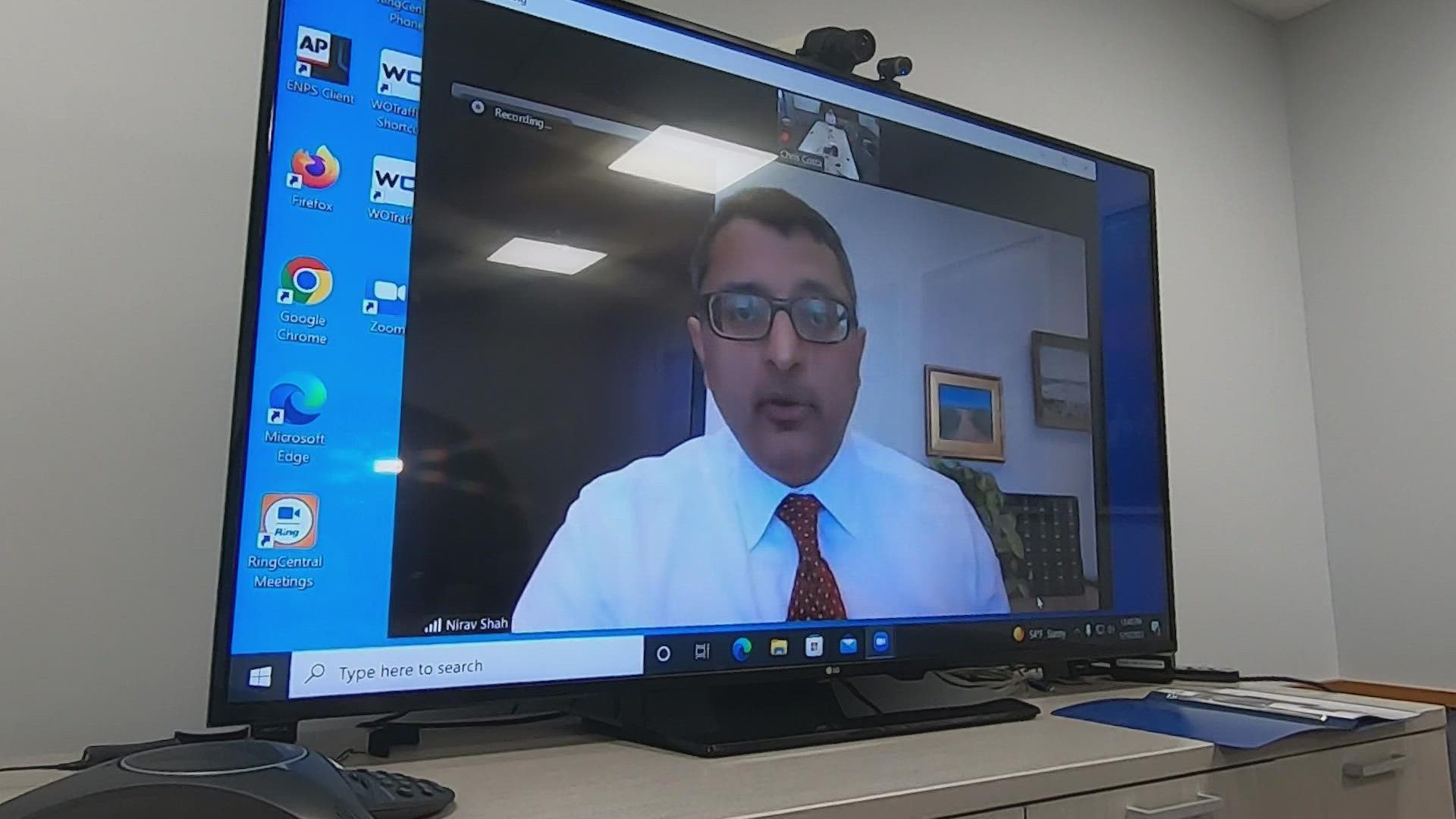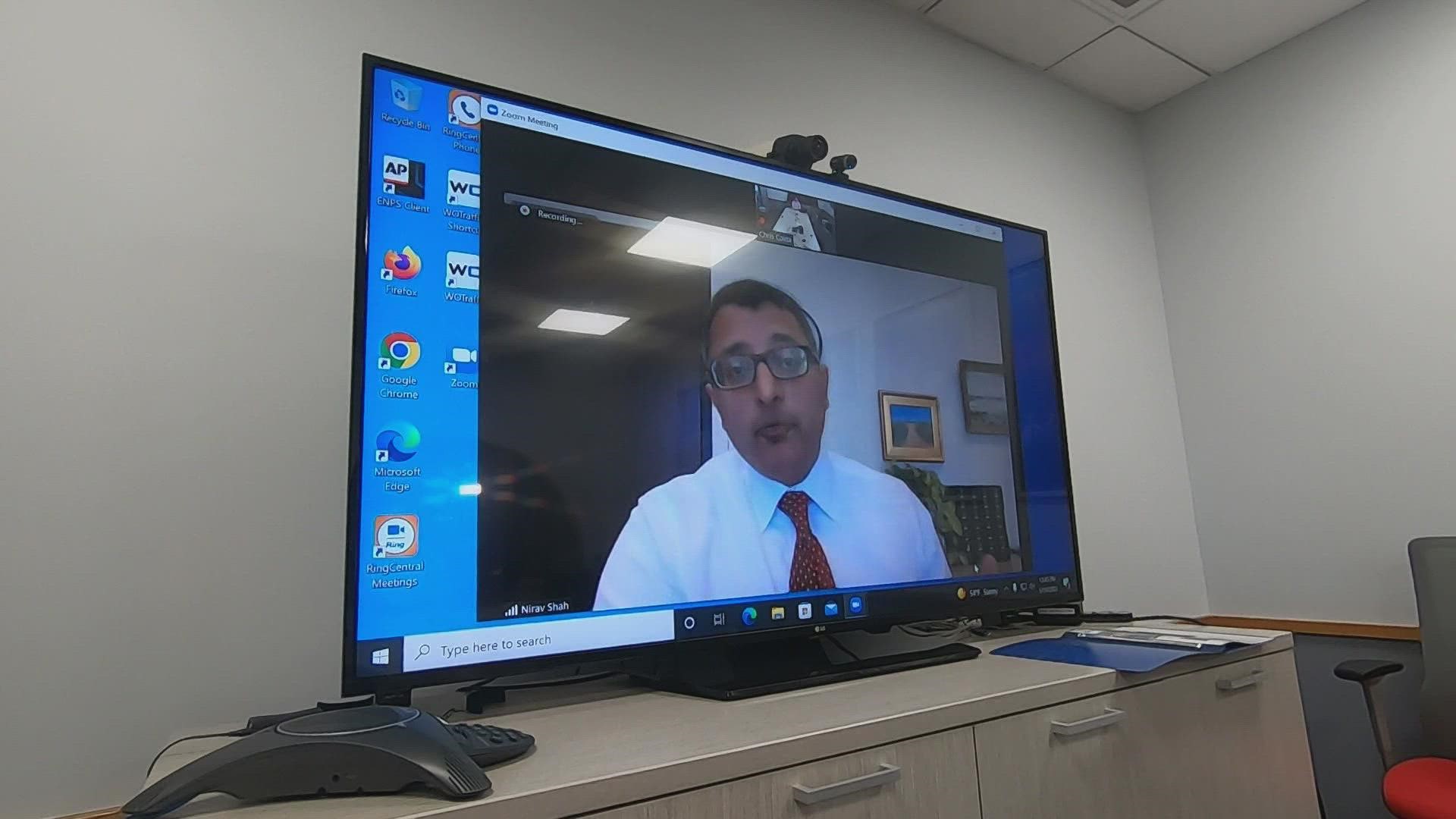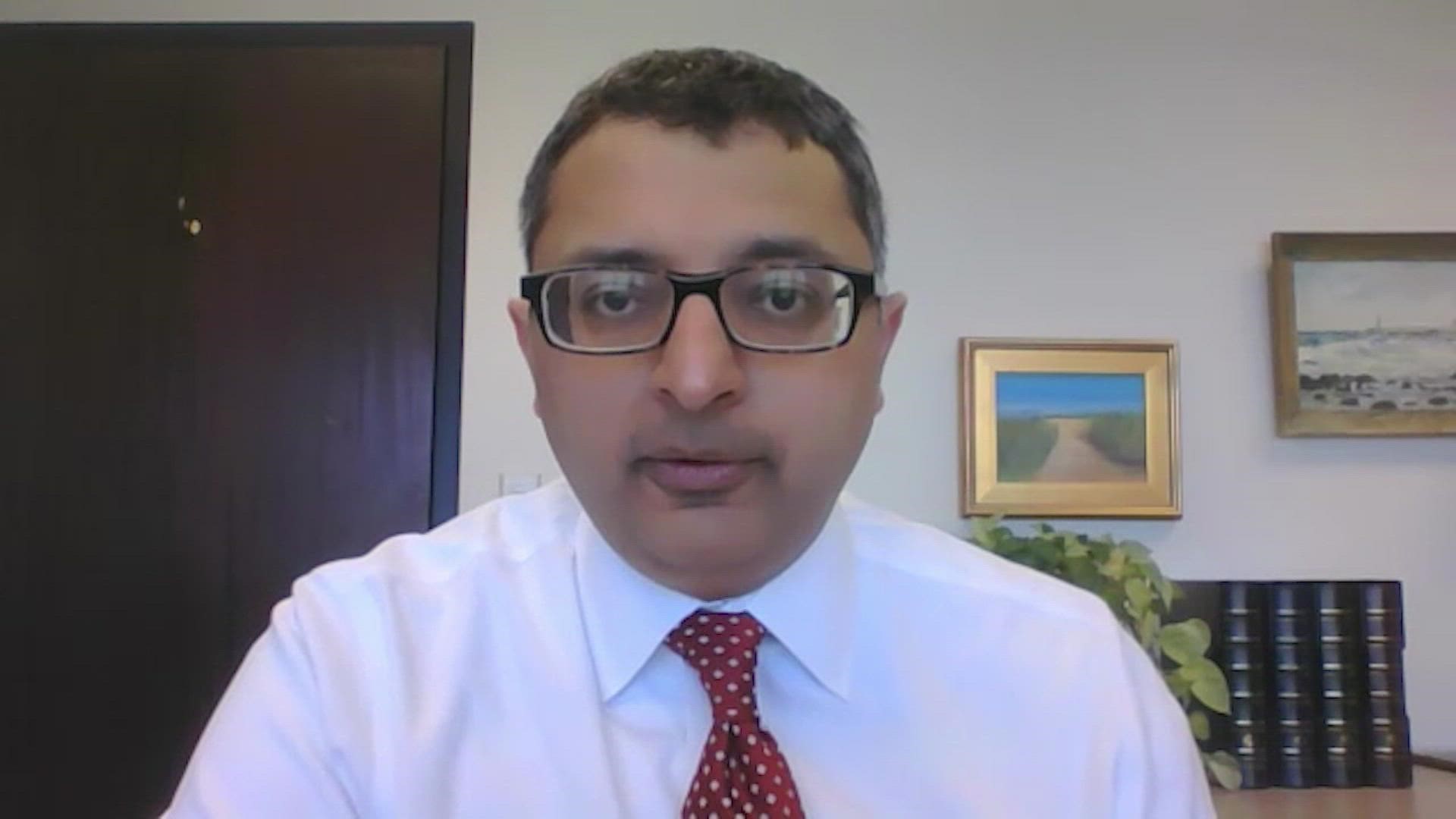AUGUSTA, Maine — Maine Center for Disease Control and Prevention Director Dr. Nirav Shah said Tuesday that the recent uptick in COVID-19 cases and hospitalizations is a new surge because of a subvariant of omicron, not a wave brought on by school vacation late last month.
As families prepare for summer vacation and spending more time outdoors, many wonder what precautions they should take when they're in public.
In a one-on-one interview, Shah said recommended precautions are determined by whether a person is up-to-date on their COVID-19 vaccines. That means someone has received all boosters as recommended by the U.S. Centers for Disease Control and Prevention.
For people age 50 and older, and those 12 and older who have certain immunocompromising conditions, the CDC recommends a second booster dose.
For someone up-to-date, Shah said the next step is to consult the U.S. CDC's community level map, which factors in cases, hospitalizations, and more.
Lastly, he said, it is critical for people to consider their own health status and those of their loved ones.
"Those who are up-to-date on their shots enter the summer with relatively low risk," Shah said. "Those who have not availed themselves of the vaccine are still at risk."
He said those who are up-to-date on shots can feel safe gathering in crowds in outdoor settings, so long as they do not have another health condition.
Shah also addressed breakthrough cases, when a person who has received a final dose of either the Johnson & Johnson, Moderna, or Pfizer vaccine still catches the virus. He said he does not expect the U.S. CDC to change the definition of "fully vaccinated" to include booster doses, which national data show reinvigorates a person's immunity. The immunity from the first course of shots wanes to about 66 percent after six months, according to CDC data.
"Vaccines are not 100 percent effective," Shah said. "They are not an impenetrable shield. No medicine is 100 percent effective. I have friends in law enforcement who wear their bulletproof vests even though they know it is not 100 percent effective, but they'd rather wear it than not."
Shah also said he plans to issue another round of guidance to doctors about expanding eligibility for Paxlovid, one of the medications used to treat people diagnosed with COVID. He said it is readily available in the state but that he is hearing from people who said their doctors mistakenly told them they were not eligible.



